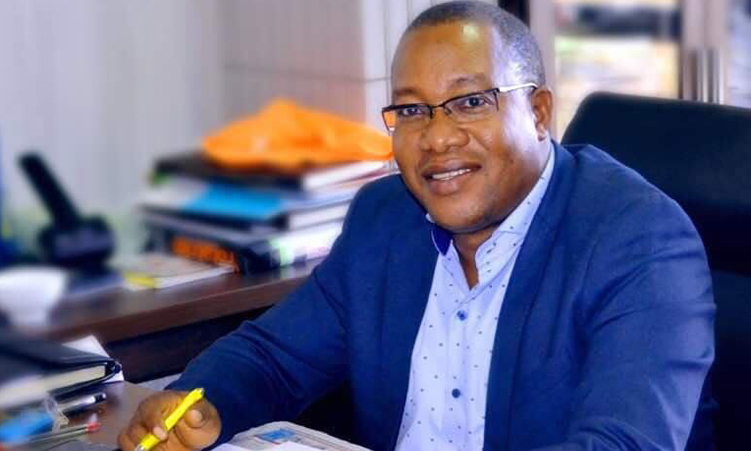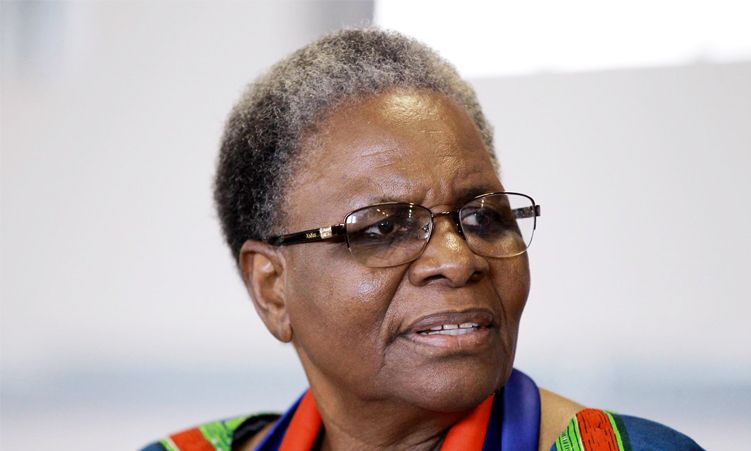Senior officials at the government’s central medical stores have requested that the procurement threshold be moved up from N$25 million to N$500 million to meet present demands and improve service delivery.
Executive director of health and social services Ben Nangombe says there is a need to allow more exemptions on urgent procurement matters.
The senior officials were addressing the parliamentary standing committee on gender equality, social development and family affairs, which visited their offices on Monday.
Fabiola Vahekeni, the chief pharmacist at the central medical stores, said the request for a higher threshold means the stores are able to procure more stock and to be in control of the plans they put in place.
“Ten years ago, the central medical stores’ level was at 90%. That means we were able to satisfy the hospitals up to that level because we had contracts,” she said.
Vahekeni said when the new Procurement Act was introduced, there were no long-term contracts any more.
“We have been fixing fires. As you fix this one, another one pops up, and that is why our service delivery has been low,” she said.
According to her, once their office has prepared all procurement paperwork, it will be submitted to the Central Procurement Board of Namibia (CPBN).
“When the CPBN is not able to award a tender, we then find ourselves in a perpetual situation all the time, because we need to close the gaps, while we wait for a bigger contract,” Vahekeni said.
She said the stores’ annual requirements are impacted when tenders are not awarded.
PATIENTS AFFECTED
The pharmacist said when medicine is not delivered on time, patients are affected.
“In terms of the threshold, our budget is around N$1,7 billion. From that we run three bids of pharmaceutical products, antiretrovirals and clinical supplies,” she said.
“On average, I think having a threshold of N$500 million would allow us to run these three bids. You run them for three years and you just have a framework contract in place and just keep calling off orders,” Vahekeni said.
She informed the committee that the Ministry of Health and Social Services is exempted from procuring above its threshold.
“If we need paracetamol today, we don’t need to run the whole procurement process, but we just call off the order,” Vahekeni said.
She told the committee that long-term contracts would allow the stores to plan properly.
Hospitals and clinics are currently required to have “safety stock” in place while procuring new products and supplies, she said.
“What happens now is that we don’t even have enough stock. It comes in and goes, and we are back to zero again. So it’s a repetitive process,” she said.
‘BROKEN SYSTEM’
“We make recommendations, but implementation is low. The old system of having long-term contracts was working, but we have broken a working system,” Vahekeni told the committee.
Acting deputy director of operations at the central medical stores, Barnabas Iitula, said the N$25 million threshold is a challenge.
Iitula told the committee this threshold would only procure enough stock for one or two months.
“Which means we need to buy medicine every two months at a very high price, because the quantities are small,” he said.
Iitula said most cost-effective and affordable medications are not registered in the country.
He told the committee buying medication from the private sector leads to overspending, leaving no money to buy other medication.
The procurement system is tedious, Iitula said.
He told the committee many healthcare facilities do not keep record of orders from the central medical stores.
“A lack of data from healthcare facilities is also making us unable to come up with a proper budget,” Iitula said.
INCOMPLETE TENDERS
Nangombe said although the ministry has a procurement threshold of N$25 million, many health tenders handled by the procurement board cannot be finalised.
“As a result, we don’t have long term-tenders in place for a number of products, such as pharmaceutical and clinical supplies,” he said.
Nangombe said the ministry has considered being provided with an exemption to be able to procure the products and supplies it needs.
“We have engaged the policy unit and treasury, and there have been instances where we have been given exemption to procure,” he said.
Nangombe said in terms of the Public Procurement Act, the threshold for public entities currently remains as is.
“It is not just an adjustment. It would mean, for instance, a dedicated procurement entity could be created to deal with medical supplies and products. Other countries have done that,” he said.
‘MATTER OF LIFE AND DEATH’
Nangombe said the procurement of pharmaceutical products is a matter of life and death, and the ministry cannot afford to wait a day or two due to unfinalised tenders.
“The ideal situation is for us to have long-term contracts with suppliers, and that is exactly what we have done. However, we currently have tenders at the procurement board that are not finalised,” he said.
Nangome said no long-term tender has ever been awarded.
“There is a need to provide a mechanism to enable the ministry to procure more efficiently. The current system is quite challenging,” he said.
CPBN chairperson Amon Ngavetene said reconsiderations, applications to review and applications to the High Court often delay finalising tenders.
“It is not about the inefficient processes on the part of the board,” he said.
Stay informed with The Namibian – your source for credible journalism. Get in-depth reporting and opinions for
only N$85 a month. Invest in journalism, invest in democracy –
Subscribe Now!






